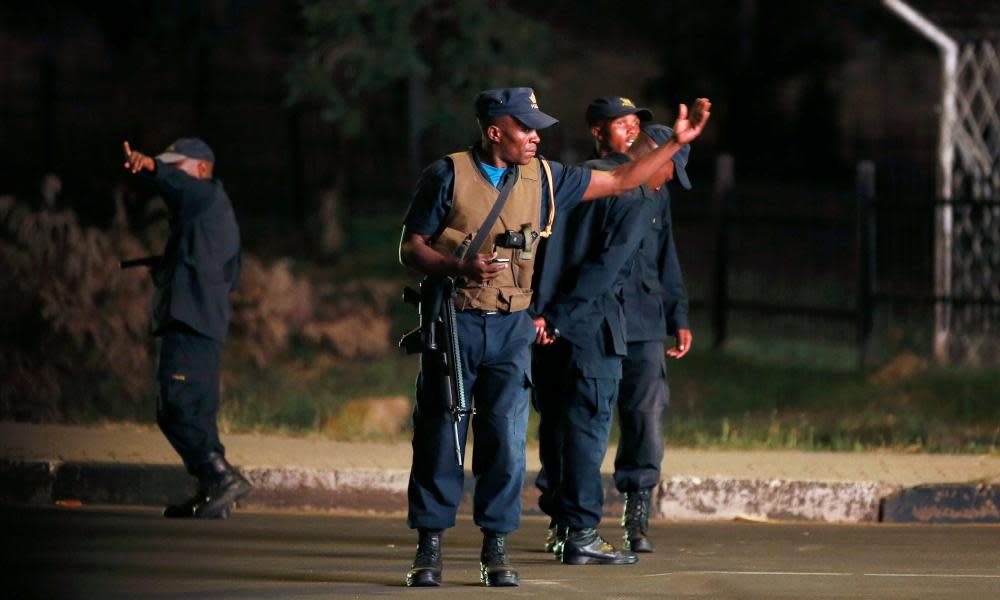Lesotho murder rate ranked sixth worst in world as judicial system breaks down

The tiny mountain kingdom of Lesotho has the sixth highest murder rate in the world, according to a recent World Population Review report.
The global average murder rate is seven per 100,000 people, found the report, and Lesotho had a rate almost six times higher at 41.25. The report ranked Lesotho as only safer than El Salvador (82.84 per 100,000 people), Honduras (56.52), Venezuela (56.33), Virgin Islands (49.26) and Jamaica (47.01).
Lesotho, with a population of just over 2 million people, has more homicides than countries in conflict such as the Democratic Republic of the Congo (DRC) and Mozambique. DRC has a homicide score of 13.55, and Mozambique 3.4. Lesotho’s much more populous neighbour, South Africa, has 33.97 murders per 100,000 people and is the only other Southern African Development Community country in the top 10 for highest rates of murder.
In the past three months, six police officers have been killed in Lesotho, three of them in the past three weeks.
Two weeks ago, police constable Mokilane Mokete was gunned down on a Saturday evening in Mapoteng, about 70km north-east of the capital, Maseru. Mokete was killed days after another police officer, Selone Selone, was killed by unknown gunmen in Butha-Buthe.
Related: ‘It opened my eyes’: Lesotho ski resort goes off-piste to keep workers
Earlier this month, Sgt Qetelo Letšela was shot dead in the diamond-rich Mokhotlong district by 10 members of the Kobo-kholo group, who allegedly abducted him while he was taking his 12-year-old son home from hospital.
Letšela’s body was allegedly mutilated before being thrown over a cliff. Four of 10 suspects have so far been arrested in connection with the murder and were remanded in custody last week awaiting trial.
Contributing to Lesotho’s unenviable position are the unresolved killings of women and children that have rocked the country in recent years.
Analysts say Lesotho’s underfunded judiciary is sitting on thousands of untried cases. In May this year, high court and appeal court registrar Mathato Sekoai told the media in Maseru that the government had allocated just 937,366 rand (£46,700) to be shared by all the country’s courts including the high court and court of appeal. The allocation was for April to June this year.
The amount didn’t even cover what the Maseru magistrates court owed for its power bill. As of May this year, the court’s debt to the Lesotho Electricity Company stood at 1.3m rand, accumulated over the past five years.
The paltry allocation was in contravention of section 118(3) of the constitution, which mandates the government to “accord such assistance as the courts may require to enable them to protect their independence, dignity and effectiveness, subject to the constitution or any other law”.
A crippled judiciary coupled with police ineptitude has led to some murderers walking free despite gruesome killings.
Police have often blamed the huge number of unlicensed firearms that find their way into Lesotho from South Africa through porous borders. But analysts say this does not explain why well-known criminals are rarely taken to court; or why, when cases are taken to court, there are few convictions.
Court cases can be seemingly endless. For instance, former army commander Lt Gen Tlali Kamoli is facing a litany of charges relating to murder, attempted murder and bombings. He has been in custody since 2017, but the bulk of the cases are on hold because he and his co-accused have forced the courts to stop the trials using one application after another in the hope of a change of government, analysts say.
“Once a favourable regime comes in, they hope to be pardoned. After all, Lesotho has in the past decade changed governments thrice,” said a court official who did not want to be named. “In the meantime, homicides and other crimes are increasing because perpetrators are not deterred by the punishment of others who commit such crimes.”
Among the ripple effects of these failures is a sense of impunity that has resulted in a high number of domestic violence cases.
“The lack of consequences for these wanton killings is where the problem lies,” said Mahao Mahao, a lecturer at the National University of Lesotho.
“It is even worse now that members of the police are also among the victims of the violence and this leaves the general public wondering what it means to the ordinary man on the street if deadly violence affects even law enforcers who carry weapons all the time. It leaves the public much more vulnerable than ever.
“The well-known reality in Lesotho is that the law does not bite those in higher positions of government when it is expected to. They either go scot-free or frustrate the justice system from functioning as it should,” he said.
Mahao sees no immediate end to the problem without political will, and proper funding for the police and judiciary.

 Yahoo News
Yahoo News 
